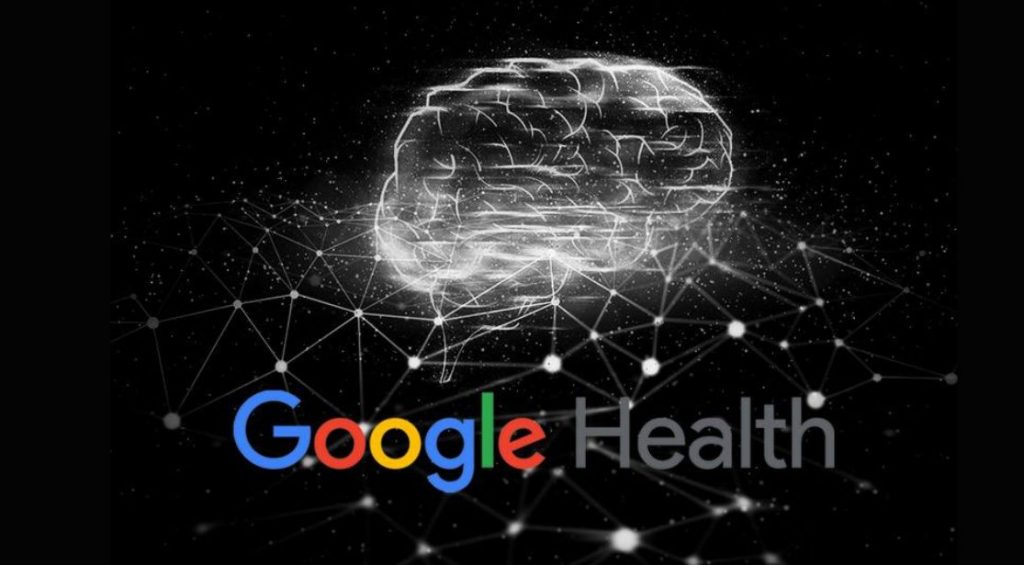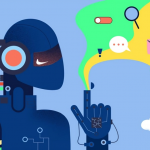For better or for worse, we live in very interesting times. With the emergence of AI and machine learning, every other industry is racing to integrate digital solutions for the functioning of its core capabilities. This digital transformation of industries, while seeming promising, brings along the looming burden of security and privacy breaches. Now, if you think about Google, what comes to mind? A search engine, perhaps? But beneath the surface of instant answers and endless information, Google is weaving its innovative threads into digitizing the world of healthcare. Google Health was supposed to be a repository of healthcare records and data (Patient Health Records or PHR, as it is commonly called) for the easy operation of doctors, pharmacists, and hospitals. Today, Google Health is much more than a repository for medical records. Despite its innovative strides, acceptance for this project across the healthcare sphere seems partial, and there are several reasons why.
To begin with, let’s first look at the evolution of Google Health. Google Health was actually a digital healthcare project initiated by Google back in 2008. Back then, it was a repository of patient data that could be manually entered into Google’s Health system or by directly logging in to the system via partnered service providers. At this point, the data that could be fed into the Google Health system was the patient’s medical history, prescriptions, allergies, diagnostic reports, etc. Once the data was fed, Google would simply utilize this information to compile and provide a consolidated health report. In 2008 itself, Google Health was released to the public for a beta test. But by 2012, Google said it was discontinuing this service due to a lack of widespread adoption (yes, it was pre-Covid-19, and the general public did not find a need to digitize health records).
Later in 2018, Google Health was back in the picture. GoogleBrain (Google’s deep learning AI research team) collaborated with DeepMind (a UK-based AI research laboratory), Ascension (one of the largest privately owned healthcare systems in the US), and Nest Labs (Google’s acquired line of smart home products) for a project. The main objective of the collaboration was to ensure that the most appropriate result is obtained when health-related searches are carried out on Google and YouTube; in other words, “to improve the quality of health-focused search results across Google and YouTube” (1). All of this was going on, and along the journey, several collaborations with major figures happened, such as those with CVS Health and the Melinda Gate Foundation, in order to expand the reach. While all of this was in process, Google acquired FitBit in 2019. Several other business processes were followed to develop and expand Google’s footprint in the healthcare market.
After persistent efforts by Google to create its own digital health ecosystem, here is a bird’s-eye view of the major offerings that fall under their umbrella:
Google Fit app, Android Health, Care Studio, Google Health Connect, Google AI for Healthcare, Healthcare Data Engine, Cloud Healthcare API, DeepMind with NHS, Verily with Onduo (a digital platform for managing chronic diseases like diabetes), Google.org with PATH, and Google Scholar (to explore medical research papers and stay updated on the latest scientific discoveries). (2, 3, 4)
But it doesn’t stop there. They are working on an AI-assisted detection and referral system for diabetic retinopathy, an online skin search app called DermAssist, and Open Health Stack (a suite of building blocks for creating next-gen healthcare apps). Google Health is also integrating electronic health records (Care Studio), allowing individuals to access their medical history, lab results, and medications in one easily accessible place. Furthermore, it is expanding its EHR market horizons by collaborating with major health players such as Apollo hospitals, Aravind Eye Care, etc. to provide P2D (patient-to-doctor) and D2D (doctor-to-doctor) interoperable services. This develops a sense of ownership and control for the patients over their healthcare journey. Google Health’s reach, however, extends far beyond individual users. The initiative champions’ crucial research, using its vast computing power and AI expertise to tackle some of healthcare’s biggest challenges, including analyzing medical images, predicting disease risk, developing tools for early diagnosis, etc.
While it might all seem like we have reached the zenith of medical innovation and the digital transformation of healthcare, Google Health’s journey is one heck of a roller coaster. It still struggles to integrate completely into the healthcare system despite being nurtured under a fantastic brand name, and there are several reasons why it is so.
Google has always been at the gunpoint when questions surrounding data privacy, algorithmic bias, and potential misuse of information are raised. For starters, when a simple prompt on Bard about anything related to Google provides a response worthy of a sales pitch, how can something as critical as PHR be entrusted to Google to comply with unbiasedness and non-discrimination? It is only valid to consider the fairness and neutrality of a platform when charging them with crucial and sensitive information like health records.
Secondly, as fancy as the use of AI-assisted technology for imaging and disease detection might sound, how would it actually deal with the question of informed consent? It is important to determine when, if ever, informed consent should be used in the field of diagnostic or therapeutic artificial intelligence. How much of a burden is it on physicians to inform patients about the nuances of artificial intelligence (AI), such as the specific ML version(s) employed, the type of data inputs, and the potential for biases or other flaws in the data used? When is it necessary for a doctor to tell a patient that artificial intelligence is being used? For instance, how much should a doctor communicate when they don’t understand the AI’s diagnosis or therapy suggestions? What level of openness is required? How does this relate to the “right to information”? What if a patient is hesitant to consent to the use of certain types of data, such as genetic information or family history? Is there a way to ensure that AI is both safe and effective while also protecting patients’ privacy?
While using AI in healthcare, ensuring patient safety is another major concern. A recent case is that of IBM Watson for Oncology, an AI-powered system aiding cancer treatment decisions. It faced criticism due to “unsafe and incorrect” therapy suggestions reported in recent findings. The system’s training relied on a limited set of “synthetic” cancer cases instead of real patient data, leading to erroneous recommendations during testing, as acknowledged by the Memorial Sloan Kettering (MSK) Cancer Centre (5). While no incorrect treatments were administered to real patients, this incident has cast a negative perception on the field’s reliance on AI in healthcare. Furthermore, it demonstrates how critical it is that AIs are both safe and effective. The question is, how can we make sure AIs deliver as promised? In order for AI to reach its full potential, it is imperative that stakeholders, especially AI developers, guarantee two things: the dataset’s reliability and validity, and its transparency.
Truthfulness, efficacy, and fairness in data training determine the reliability, accuracy, and performance of any ML system or algorithm that is human-trained. AI also has the potential to be biased and discriminatory. Makers of AI must be cognizant of this issue and work to minimize biases throughout the entire product development process. In addition to all of this, do Google ads use the data that it collects across its various platforms? Are Google’s employees in charge of overseeing specific targeted marketing campaigns? The healthcare system in itself is super complex and different in every country. It is so diverse because each country’s healthcare system is designed to treat a different population structure with different demographics. It cannot be a one-size-fits-all kind of thing. The design would differ based on numerous parameters, such as the economy of the country, gender diversity, IMR and MMR, population growth rate, existing healthcare infrastructure and financing, etc. So studying the different healthcare systems in every country is in itself a highly difficult task, and the fact that it is evolving every minute makes it all the more difficult. To fit into a common platform that would contain every patient’s health record and make it accessible globally, and to ensure perfect interoperability, are huge challenges. If Google finds answers to these and many more such concerns, only then will it ever make its way through the complexities of the healthcare industry.
While the Google health ecosystem holds promise in healthcare, addressing the biases and complexities in data training remains integral. Overcoming these challenges would pave the way for Google to navigate through the complexities of the healthcare industry seamlessly and achieve its vision of having connected healthcare.
Sources:
- Lakshmanan, Ravie (November 4, 2019). “Google wants to create the ultimate medical record search tool for doctors.”. The Next Web.
- https://health.google/
- https://verily.com/solutions/onduo
- https://en.wikipedia.org/wiki/Google_Health
- Ross C., Swetlitz I. IBM’s Watson supercomputer recommended ‘unsafe and incorrect’ cancer treatments, internal documents show. STAT, https://www.statnews.com/2018/07/25/ibm-watson-recommended-unsafe-incorrect-treatments; 2018.
- Gerke S., Minssen T., Cohen G. Ethical and legal challenges of artificial intelligence-driven healthcare. Artificial Intelligence in Healthcare. 2020:295–336. doi: 10.1016/B978-0-12-818438-7.00012-5. Epub 2020, June 26. PMCID: PMC7332220.
- Racine E, Boehlen W, and Sample M. Healthcare uses of artificial intelligence: Challenges and opportunities for growth. Healthcare Management Forum. 2019;32(5):272-275. doi:10.1177/0840470419843831
Author: Monica Sivaprakash
About the Author: Student of MBA-HHM01
#ai #iimbg #datatraining #theenlighteningiim#phr #challenges #commsclub #googlehealth



